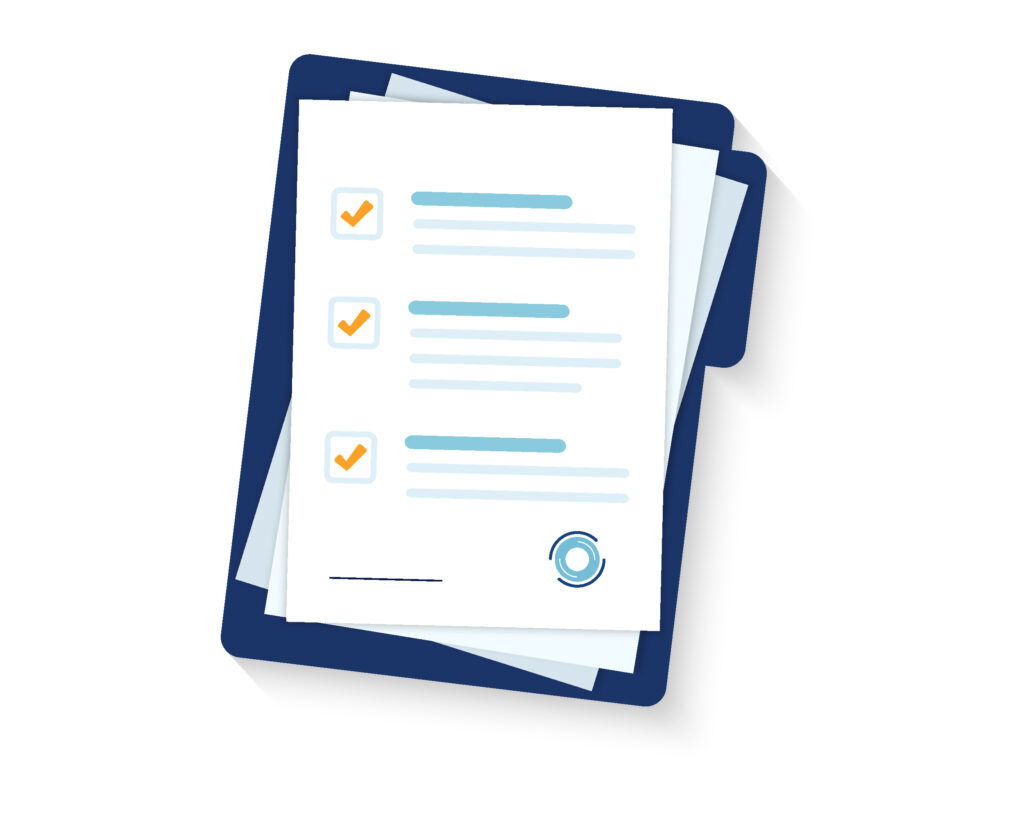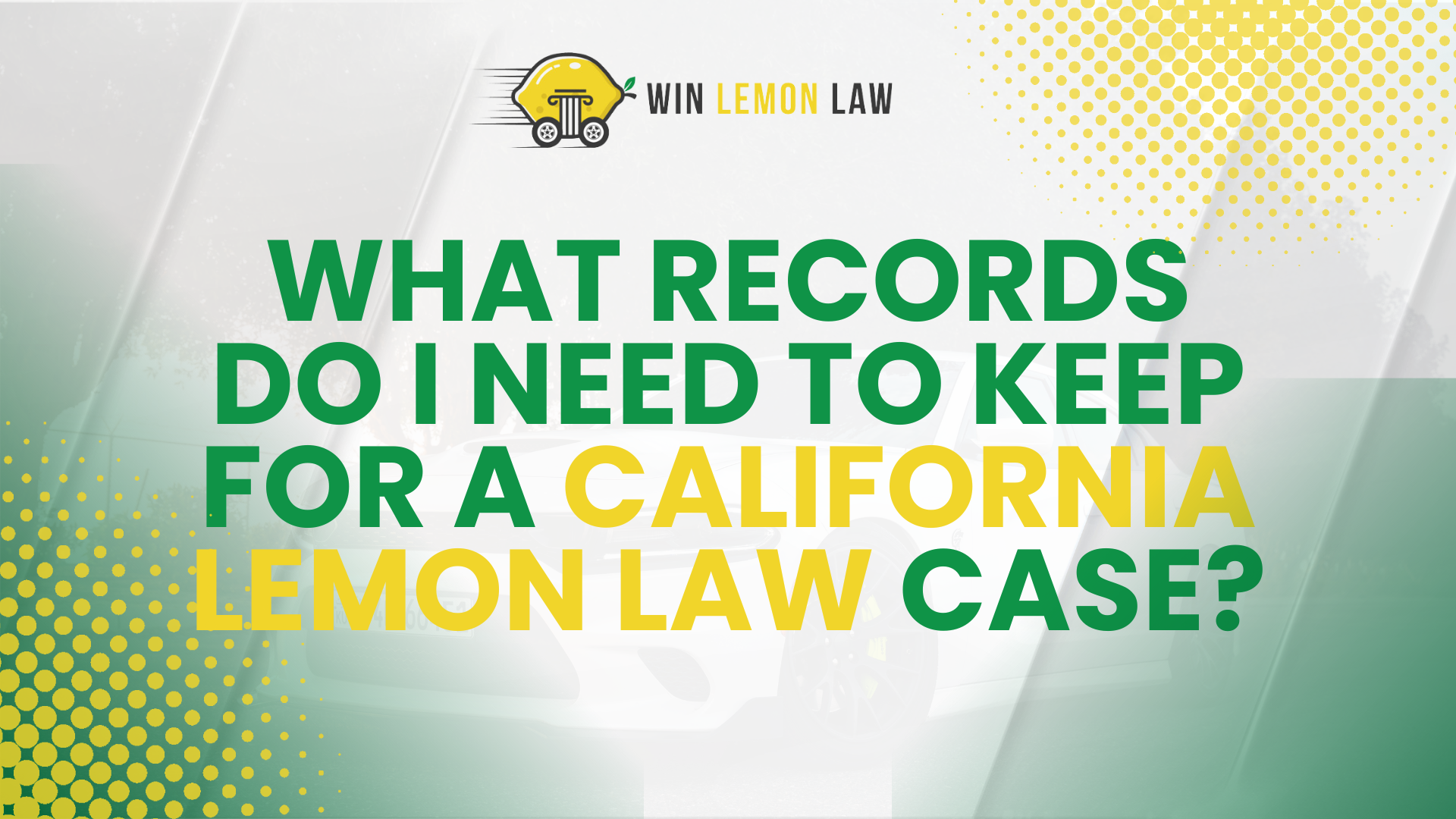Navigating through a California lemon law case is a multifaceted process that extends beyond simply recognizing that your vehicle is defective. It requires a comprehensive understanding of the legal framework and meticulous documentation to build a strong case and secure fair compensation from the manufacturer. The cornerstone of a successful lemon law claim in California is the quality and depth of evidence you can provide. Every detail matters, from the initial signs of vehicle defects to the steps taken to address the issues with the manufacturer. Keeping thorough and accurate records is not just a recommendation; it’s a critical necessity.

Understanding California Lemon Law
California Lemon Law sets specific criteria for a vehicle to be considered a “lemon.” These criteria include the vehicle being sold with a written warranty, defects being reported within the warranty terms, and the defects being substantial and not caused by consumer negligence. Additionally, the law requires that the vehicle has undergone a reasonable number of repair attempts or has been in the repair facility for a cumulative total of 30 or more days.
When a vehicle is sold with a written warranty, it implies that the manufacturer or dealer guarantees that the vehicle will function correctly for a certain period or up to a specified mileage limit. If defects arise within this warranty period or mileage limit, the manufacturer or dealer is responsible for addressing these defects under the terms of the warranty.
The defects must also be substantial, meaning they significantly impact the vehicle’s use, value, or safety. Examples of substantial defects include persistent mechanical issues, safety-related problems, or defects that make the vehicle unreliable or unsafe to drive. It’s important to note that defects caused by consumer negligence, such as improper maintenance or misuse of the vehicle, are typically not covered under lemon law.
Before filing a lemon law claim, the consumer must give the manufacturer or dealer a reasonable opportunity to repair the defects. This usually involves allowing the manufacturer or dealer to make multiple repair attempts or keeping the vehicle in the repair facility for a cumulative total of 30 or more days. These repair attempts must be documented, including dates, descriptions of the issues, work performed, and outcomes, to support the lemon law claim.

Essential Documentation for Your Claim
Warranty Terms
The warranty serves as the foundation of your lemon law claim. Whether it’s the manufacturer warranty for new vehicles or a dealer warranty for used ones, keeping a copy of these terms is vital in building your case. Here’s a more detailed explanation of why warranty terms are essential for your claim:
Legal Basis: It’s a binding document that outlines the manufacturer’s or dealer’s responsibilities for defects and repairs.
Coverage Details: It specifies which parts are covered, helping you identify if your defects are included.
Repair Obligations: It defines how many repair attempts are allowed and the time for repairs.
Duration: It states how long the coverage lasts, helping determine if your vehicle qualifies as a lemon.
Voiding Conditions: It lists actions that could void the warranty, like unauthorized modifications.
Manufacturer Responsibilities: It may include providing a replacement vehicle or buyback if issues persist.
Evidence: Keeping a copy is proof of your agreement, showing you expected defects to be fixed under warranty.
Repair Orders (Closed): Repair orders are essential documents in a lemon law claim as they detail each visit to the dealership or repair facility, including reported issues, work done, and service dates. These records create a timeline of repair attempts, showing efforts to fix the defects. Closed repair orders with unresolved issues are particularly strong evidence. They demonstrate that despite multiple attempts, the problems persist, indicating substantial defects. These documents fulfill legal requirements and can be evaluated by experts, enhancing your claim’s strength.
Invoices: Save invoices for any work done on your vehicle, whether under warranty or paid out of pocket. Invoices prove that repair attempts were made and detail the financial impact of those repairs. They also demonstrate that you followed the warranty terms and can be used as evidence during negotiations or legal proceedings. Overall, keeping invoices organized strengthens your claim.
Record of Dates in the Facility: Keeping a record of dates when your vehicle was in the repair shop or when you communicated with the manufacturer’s representatives is crucial for your lemon law claim. This record creates a timeline of repair attempts and communication, showing that you gave the manufacturer a fair chance to fix the defects. It also helps track the time your vehicle spent in repairs, meeting legal requirements.
Documentation of Lemon Law Buyback Amount
Purchase Order:
A purchase order is a document that shows how much you paid for your vehicle. It’s important for calculating the buyback amount in a lemon law case because it proves your ownership and the official cost of the vehicle before any defects. Having a purchase order makes it easier to determine any reimbursements or refunds owed to you.
Loan Terms:
It refers to keeping records of your vehicle financing, including the loan contract and payment history. This information is crucial for determining the financial settlement in a lemon law buyback. It helps calculate the outstanding loan balance, verifies ownership, and ensures legal compliance. Keeping these documents organized is essential for a successful lemon law claim.
Down Payment:
Documenting the initial down payment made on your vehicle is important as it influences the settlement process. Your down payment affects the settlement amount and also serves as proof of your ownership.

Additional Costs
Additional costs related to your vehicle include various official expenses such as sales tax, registration fees, license plate fees, and other legal costs. These costs are essential to consider when assessing the overall financial impact of owning the vehicle. Here’s a more detailed explanation of each:
Sales Tax: This is a tax imposed on the sale of goods, including vehicles, by the state or local government. The sales tax rate varies depending on your location and the type of transaction (e.g., new purchase, used purchase, lease).
Registration Fees: When you purchase a vehicle, you are required to register it with the appropriate state or local motor vehicle department. Registration fees cover administrative costs and vary based on factors such as the vehicle’s weight, type, and location.
License Plate Fees: These fees are associated with obtaining and renewing your vehicle’s license plates. They contribute to maintaining road infrastructure and vehicle-related services.
Other Legal Costs: This category may include additional legal fees or charges associated with owning and operating a vehicle, such as title transfer fees, emissions testing fees, or any required inspections.
Incidental Costs
Incidental costs refer to additional expenses incurred due to a vehicle defect. These costs can include transportation alternatives (such as rental cars or public transit), towing fees, hotel stays, meals, and other related expenses. Here’s a more detailed explanation of each:
Transportation Alternatives: If your vehicle is unusable due to a defect, you may need to arrange alternative transportation, such as renting a car, using rideshare services, or taking public transportation. The costs associated with these alternatives should be documented.
Towing Fees: If your vehicle needs to be towed to a repair facility because of a defect, the fees for towing services should be recorded. These fees can vary depending on the distance towed and the towing company’s rates.
Hotel Stays: In some cases, vehicle defects may require extensive repairs that cannot be completed in a single day. If you need to stay at a hotel while your vehicle is being repaired, the costs of accommodation should be documented.
Meals: While your vehicle is undergoing repairs or if you are traveling due to a defect-related issue, you may incur additional meal expenses. These expenses, such as restaurant bills or food purchases, should be included in your documentation of incidental costs.
Other Expenses: Depending on the nature of the defect and its impact on your daily life, there may be other incidental costs to consider. For example, if the defect causes you to miss work or affects your daily activities, any resulting financial losses or expenses should be documented.
Legal/Court Costs
Legal or court costs refer to expenses associated with legal representation and court proceedings in a lemon law claim. These costs can include attorney fees, court filing fees, expert witness fees, deposition costs, and other legal expenses. Here’s a more detailed explanation of legal/court costs in the context of lemon law claims:
Attorney Fees: Lemon law cases often require legal representation, and attorneys may work on a contingency fee basis. This means that they only get paid if the case is successful, typically receiving a percentage of the settlement or award. Keeping records of contingency terms with your attorney involves documenting the agreement regarding legal fees and payment terms.
Court Costs: Court costs refer to fees associated with filing legal documents, court appearances, and other proceedings related to the lemon law claim. These costs can vary depending on the complexity of the case and the jurisdiction where the case is filed.
Expert Witness Fees: In some lemon law cases, expert witnesses may be needed to provide testimony or analysis regarding vehicle defects, repairs, or other technical aspects. Expert witness fees should be documented as part of the legal/court costs.
Deposition Costs: Depositions involve taking sworn statements from witnesses or parties involved in the case. Deposition costs may include fees for court reporters, transcripts, and other related expenses.
Other Legal Expenses: Additional legal expenses may include costs for investigations, document preparation, travel, and any other expenses directly related to the legal representation and court proceedings.

Closing
Building a successful California lemon law claim requires meticulous documentation and understanding of the law’s intricacies. Here at Win Lemon Law, we are committed to helping consumers build successful California lemon law claims through meticulous documentation and a deep understanding of the law’s intricacies. If you suspect that your vehicle may be a lemon, reach out to us without hesitation. We are here to guide you in the right direction and ensure that your rights are protected.

